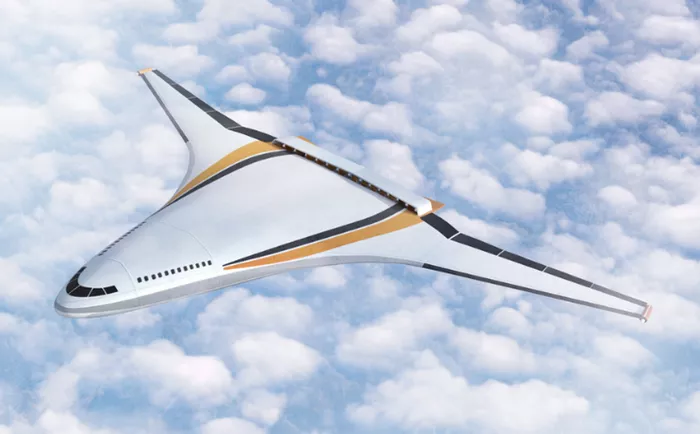The aviation industry is undergoing significant transformations as key stakeholders, including regulators, work to find solutions to reduce fuel consumption and emissions. Hydrogen has emerged as a promising potential power source, with various hybrid technologies being actively explored. While no viable, commercially applicable solution has yet been found, research continues, with breakthroughs expected in the near future.
Among the innovative ideas being researched, a concept by Phillip Ansell, a researcher at the University of Illinois, stands out. Ansell’s idea, called Hydrogen Hybrid Power for Aviation Sustainable Systems (Hy2PASS), offers a unique approach to hybridizing aircraft power systems. Unlike traditional methods, Hy2PASS focuses on “hybridization through air handling,” a concept that separates the compressor and turbine in the engine system.
In this design, a fuel cell powers an electrically driven compressor, which supplies oxygen to both the fuel cell cathode and the gas turbine burner. This eliminates the need for the core compressor stages in conventional thermal engines. More significantly, it decouples the compressor from the turbine, enabling the compressor to operate independently at variable pressure ratios, a departure from the fixed operation in traditional systems.
Ansell’s innovative approach has garnered recognition from NASA, which awarded him a NASA Innovative Advanced Concepts (NIAC) grant this January. Alongside 15 other projects, Hy2PASS is now under consideration for funding to demonstrate the feasibility of hydrogen hybrid fuel cell and gas turbine engine power systems for sustainable commercial transport aircraft.
Though the exact funding amount remains unclear, the total award pool for the 2023 NIAC initiative is $2.625 million. This grant will support efforts to prove the potential of Hy2PASS in reducing mission energy requirements and introducing zero-emissions solutions for aircraft. If successful, the technology could unlock new aircraft capabilities and significantly diminish the climate impact of aviation.
However, as with all NIAC projects, there is no guarantee that the Hy2PASS concept will reach full implementation. Since its inception in the late 1990s, the NIAC program has focused on high-risk, high-reward concepts, and while some projects succeed, many others remain in the experimental phase.
Related topics:

